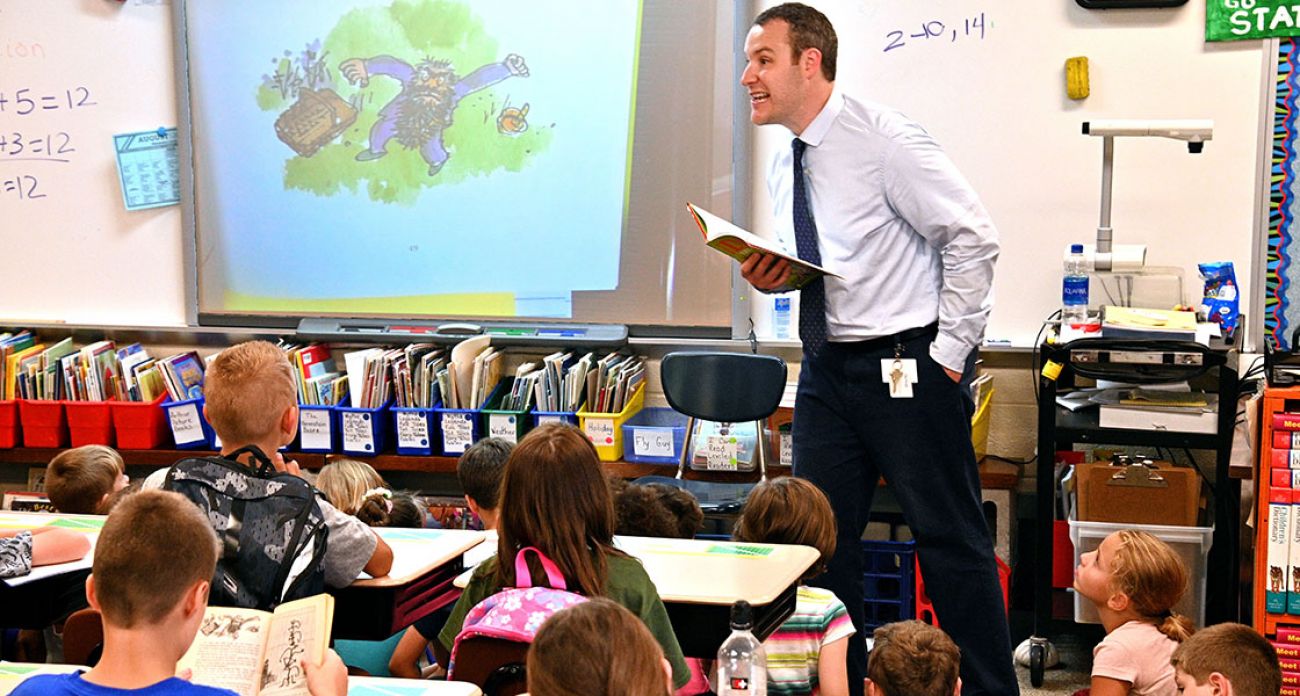Opinion | Amend third-grade reading law, U.P. school superintendents urge


As educators and child advocates, we believe that in order to create the best outcomes for our students, the third-grade reading law signed by Governor Snyder must be amended. Although we agree there are tangible benefits from the focus on early literacy generated by the law, nearly all educational leaders are united in the belief that the retention requirement is counterproductive and should be removed.
As superintendents, we believe that the best way to improve literacy rates in Michigan is to ensure all students have the necessary resources to learn how to read. Gov. Gretchen Whitmer has made it clear that she shares this belief in her fiscal year 2021 executive budget recommendation, which puts a heavy focus on literacy and includes the largest increase in school funding in decades. Last year, the governor tripled the number of literacy coaches in Michigan, keeping a promise she had made to all of us on her campaign. These initiatives focus on positive ways of supporting learners, instead of punishing them.
The cost of retention is dynamic. When a student is retained, the student will spend an additional year in the system and therefore incur all the additional costs for educating him or her for another year. The greatest cost is paid by the significant number of retained students who become dropouts. Students who drop out of school realize fewer job opportunities, lower salaries, and a higher probability of involvement with the criminal justice system. It’s been found that being retained one year almost doubled a student’s likelihood of dropping out while failing twice almost guarantees it. Retention is the second greatest predictor of school dropout. Rather than creating legislation to mandate literacy by third grade, we should be using the research to address the variables that impact a child’s inability to read.
More on Michigan's third-grade reading law:
In an era when so much attention and effort has been made to minimize the effects of trauma experienced by our students, one should question why we would knowingly create legislation that will result in increased student trauma. Flunking a student is immediately traumatic and is more likely to be experienced by those students who are categorized as poor, male and/or minority. It’s even been found that retained students experience similar effects to students who experienced corporal punishment in the home, those who were clinically depressed, and transient students. One would be hard pressed to find another educational practice where the research is so unequivocally negative yet continues to be embraced.
Governor Whitmer, in her recent State of the State Address, announced plans to help families navigate the third-grade reading law and decide what the best path is for their children. The third-grade reading law is in effect for the 2019-20 school year, and several families will see the negative impact it has on their children. The Governor’s expressed intent is to help parents make the choice that’s best for their kids.
Superintendents in the Upper Peninsula are committed to practices that are grounded in research and are designed to move our students, our schools, and our communities forward. To that end we request the Legislature reconsider the retention provision of the third-grade reading law and use resources to address the barriers to literacy known to contribute to this critical facet of learning.
Bryan Tyner, Superintendent, AuTrain-Onota Public Schools
Wilfred Cwikiel, Superintendent, Beaver Island Community School
Greg Nyen, Superintendent, Burt Township Schools
Robert Vaught, Superintendent, DeTour Area Schools
Sandra Petrovich, Superintendent, Gwinn Area Community Schools
Carrie Meyer, Superintendent, Ishpeming Public Schools
Robert Lohff, Superintendent, Mackinac Island Public Schools
Deborah Veiht, Superintendent, Marquette-Alger RESA
William Saunders, Superintendent, Marquette Area Public Schools
Pete Kelto, Superintendent, Munising Public Schools
Dan Skewis, Superintendent, Negaunee Public Schools
Bryan DeAugustine, Superintendent, NICE Community Schools
Andea Ballard, Superintendent, North Star Montessori Academy
Kevin Luokkala, Superintendent, Republic-Michigamme Schools
Bill Valima, Superintendent, Superior Central School District
Luann Lohfink, Administrator, Wells Township Schools
Thomas McKee, Superintendent, Whitefish Township Community Schools
See what new members are saying about why they donated to Bridge Michigan:
- “In order for this information to be accurate and unbiased it must be underwritten by its readers, not by special interests.” - Larry S.
- “Not many other media sources report on the topics Bridge does.” - Susan B.
- “Your journalism is outstanding and rare these days.” - Mark S.
If you want to ensure the future of nonpartisan, nonprofit Michigan journalism, please become a member today. You, too, will be asked why you donated and maybe we'll feature your quote next time!


